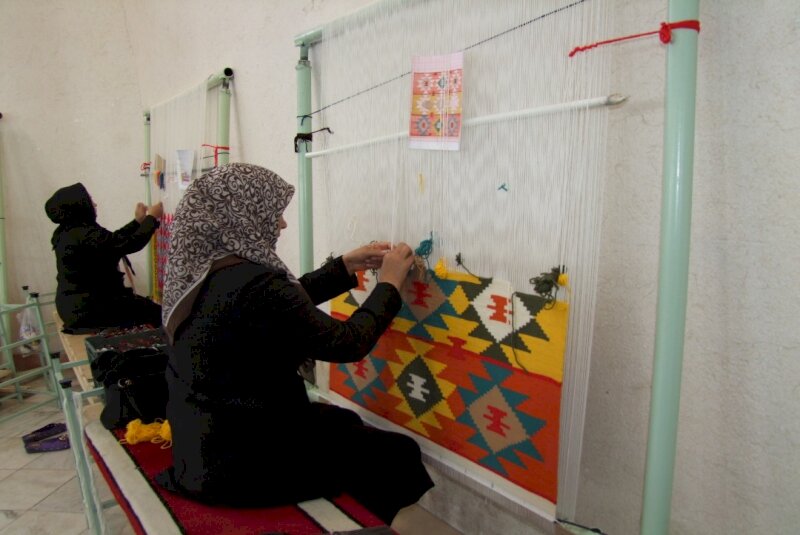Some $524,000 paid to support handicrafts businesses in Ardebil

TEHRAN - The Iranian government has paid over 22 billion rials (about $524,000 at the official exchange rate of 42,000 rials per dollar) in loans to the handicrafts businesses affected by the coronavirus pandemic in the northwestern Ardebil province.
This amount of money was paid to 205 handicraft workshops and crafters during the first nine months of the current Iranian calendar year (Mar. 20 – Dec. 20, 2020), the deputy provincial tourism chief said on Wednesday.
To support the province’s artisans and crafters, a permanent handicrafts exhibition is established, which helps them to promote their arts and businesses more properly, Nasser Mahmudi announced.
Despite the outbreak of the coronavirus, which has led many businesses to temporary closures, the activities and educational workshops related to the handicrafts sector have been developed in the province, the official added.
With 14 entries, Iran ranks first globally for the number of cities and villages registered by the World Crafts Council, as China with seven entries, Chile with four, and India with three ones come next. In late January, the cities of Shiraz, Malayer, and Zanjan and the village of Qassemabad were designated by the WCC- Asia Pacific Region, putting Iran’s number of world crafts cities and villages from ten to 14.
Iran exported $523 million worth of handicrafts during the past calendar year 1398 (ended March 19, 2020). Of the figure, some $273 million worth of handicrafts were exported officially through customs, and about $250 million was earned via suitcase trade (allowed for customs-free and tax-free transfer) through various provinces, according to data provided by the Ministry of Cultural Heritage, Tourism and Handicrafts.
Ceramics, pottery vessels, handwoven cloths as well as personal ornamentations with precious and semi-precious gemstones are traditionally exported to Iraq, Afghanistan, Germany, the U.S., the UK, and other countries.
Last May, the deputy tourism minister Pouya Mahmoudian noted that due to the outbreak of coronavirus, suitcase exports of handicrafts were completely stopped since the month of Esfand (the last month of the year), and official exports of handicrafts experienced a steep decline.
“Some 295 fields of handicrafts are currently practiced across Iran with more than two million people engaging, majority of whom are women… Handicrafts also play an important role in the economy in our rural villages,” she said.
Government’s support package
In late October, the deputy tourism minister, Vali Teymouri, announced that a new support package to pay loans to businesses affected by the coronavirus pandemic has been approved.
Depending on the type and activity of the businesses, they could benefit from at least 160 million rials ($3,800 at the official rate of 42,000 rials) to nine billion rials ($214,000) of bank loans with a 12-percent interest rate, he said.
The loans will be allocated to tourist guides, travel agencies, tourism transport companies, tourism educational institutions, eco-lodges and traditional accommodations, hotels, apartment hotels, motels, and guesthouses as well as traditional accommodation centers, tourism complexes, and recreational centers, the official explained.
In September, Teymouri pointed to the 1.3 million tourism workers in the country, who are facing several issues due to the coronavirus crisis and said “This number, in addition to their households, includes a significant population that makes a living through tourism, who are needed to be considered in ministry’s decisions.”
Back in August, Teymouri announced that the tourism ministry has approved a total budget of 4,920 billion rials (over $117 million) to support corona-affected tourism businesses, covering as much as 36,000 people working in the tourism sector.
ABU/AFM

Leave a Comment